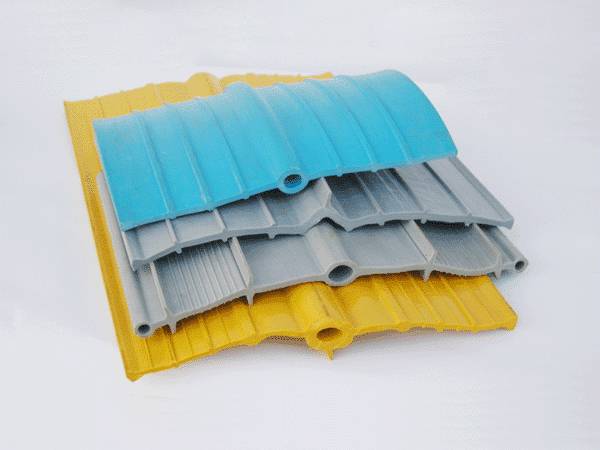Discover the top 5 water stopper materials and explore their services and benefits. Learn how these materials can protect your property from water damage.
Water stoppers are essential components for safeguarding buildings and structures against water infiltration and potential damage. Choosing the right water stopper material is crucial to ensure the longevity and integrity of your property. In this comprehensive guide, we will delve into the top 5 water stopper materials and their services and benefits. Whether you are a homeowner, contractor, or simply curious about construction materials, this article will provide valuable insights into the world of water stoppers.
Top 5 Water Stopper Materials and Their Services and Benefits
Rubber Water Stoppers
Rubber water stoppers are a popular choice due to their flexibility and durability. These materials effectively seal joints and cracks in concrete structures, preventing water from seeping through. Their benefits include:
- Flexibility: Rubber water stoppers can adapt to various joint shapes, ensuring a tight seal.
- Durability: They are resistant to weathering, making them ideal for outdoor applications.
- Easy Installation: Rubber water stoppers are relatively easy to install, reducing labor costs.
- Cost-Effective: Their affordability makes them an attractive option for budget-conscious projects.
- Longevity: Rubber water stoppers have a long service life, providing extended protection.
PVC Water Stops
PVC water stops are known for their excellent chemical resistance and corrosion prevention. They are commonly used in sewage treatment plants, swimming pools, and reservoirs. Here are the services and benefits of PVC water stops:
- Chemical Resistance: PVC water stops are impervious to a wide range of chemicals, ensuring stability in harsh environments.
- Low Maintenance: They require minimal maintenance, reducing long-term costs.
- Corrosion Prevention: These water stops protect against corrosion, extending the life of structures.
- Versatility: PVC water stops are suitable for both indoor and outdoor applications.
- Watertight Sealing: They provide a watertight seal, preventing leaks and water damage.
Bentonite Waterstops
Bentonite waterstops are natural clay-based materials with exceptional swelling properties. When hydrated, they create an impermeable barrier, making them ideal for below-grade applications. Their services and benefits include:
- Self-Sealing: Bentonite waterstops swell upon contact with water, effectively sealing any leaks.
- Compatibility: They can be used with various construction materials, including concrete and steel.
- Environmentally Friendly: Bentonite is a natural material, making it an eco-conscious choice.
- Reliability: These waterstops have a proven track record in preventing water intrusion.
- Low Maintenance: Once installed, bentonite waterstops require minimal upkeep.
Metal Water Stops
Metal water stops, typically made of stainless steel or aluminum, offer robust protection against water penetration. They are commonly used in high-impact areas where additional strength is required. Here are their services and benefits:
- High Strength: Metal water stops provide exceptional strength and impact resistance.
- Temperature Tolerance: They can withstand extreme temperature variations without losing effectiveness.
- Chemical Resistance: Metal water stops are resistant to corrosion and chemical exposure.
- Longevity: These water stops have a long lifespan, ensuring lasting protection.
- Security: They are ideal for applications where structural integrity is crucial, such as bridges and dams.
Hydrophilic Water Stops
Hydrophilic water stops are unique in that they actively seek out water to create a seal. When in contact with moisture, they expand and form a watertight barrier. Their services and benefits include:
- Self-Activation: Hydrophilic water stops activate upon exposure to water, ensuring a reliable seal.
- Adaptability: They can adjust to various joint movements, accommodating structural shifts.
- Seamless Integration: Hydrophilic water stops seamlessly integrate into existing structures.
- Sustainability: These water stops are environmentally friendly and pose no harm to aquatic life.
- Leak Prevention: They are highly effective at preventing leaks and water infiltration.
FAQs
Q: Are rubber water stoppers suitable for outdoor applications?
A: Yes, rubber water stoppers are an excellent choice for outdoor applications due to their durability and weather resistance.
Q: Do PVC water stops require special maintenance?
A: PVC water stops are low-maintenance and do not require extensive care. Regular inspections suffice to ensure their effectiveness.
Q: How do bentonite waterstops work?
A: Bentonite waterstops work by swelling upon contact with water, creating a watertight barrier to prevent infiltration.
Q: Can metal water stops withstand harsh environmental conditions?
A: Yes, metal water stops are known for their durability and can withstand extreme temperatures and harsh chemicals.
Q: Are hydrophilic water stops environmentally friendly?
A: Yes, hydrophilic water stops are eco-friendly as they do not contain harmful chemicals and are safe for aquatic environments.
Q: Which water stopper material is best for high-impact areas?
A: Metal water stops, with their high strength and impact resistance, are ideal for high-impact areas.
Conclusion
Choosing the right water stopper material is essential for protecting your property from water damage. Each of the top 5 water stopper materials has its unique services and benefits, catering to different construction needs. Whether you prioritize flexibility, chemical resistance, or sustainability, there is a water stopper material that suits your requirements. Make an informed decision to ensure the longevity and integrity of your structures.

